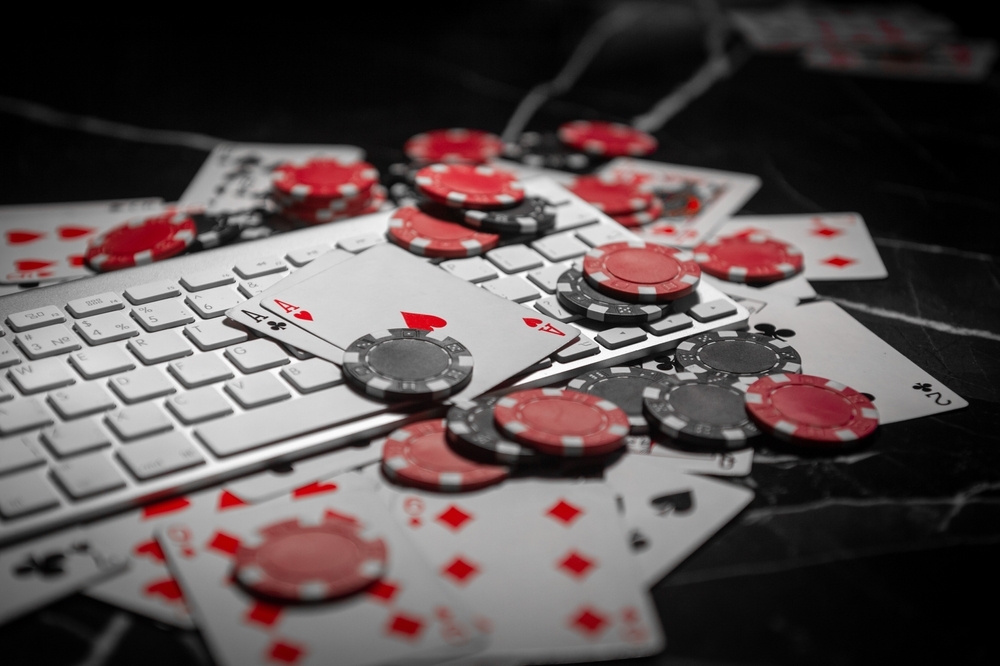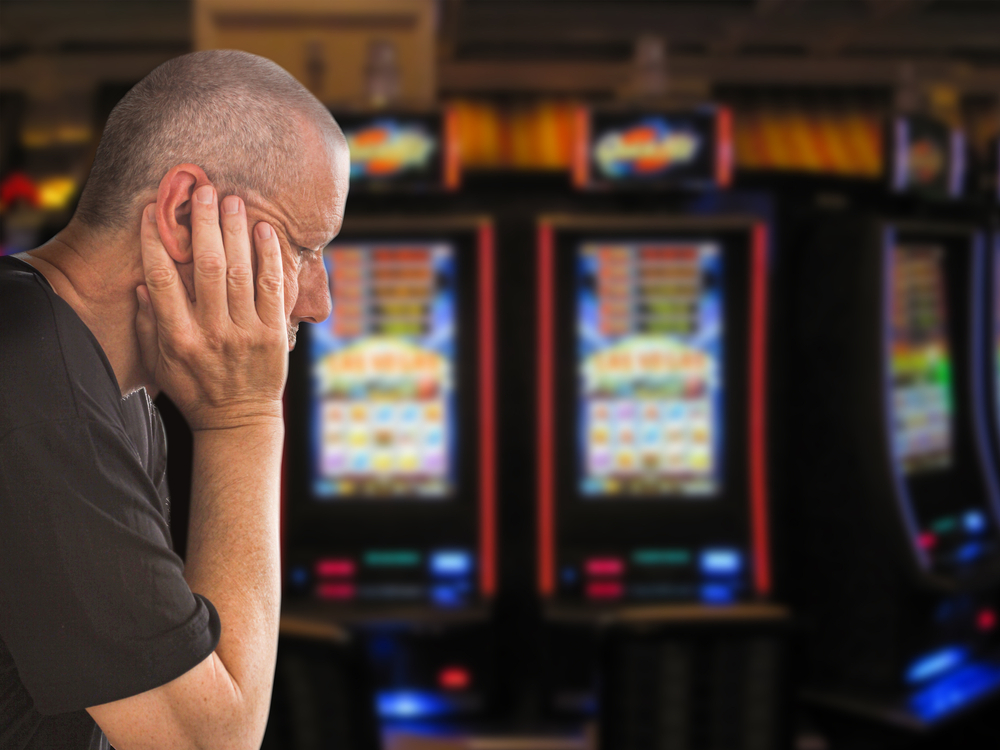Last Updated:
March 26th, 2025
Gambling addiction may be a greater problem than most people realise. Research indicates that as much as 5.3% of the global population suffers from a gambling addiction. As online gambling continues to seep into modern culture, the number can be expected to rise.
We take a look at the causes and contributors of gambling addiction, as well as the psychological and emotional damage it can cause. We hope our coping strategies can help people mitigate the struggles inherent to gambling addiction.
What exactly is compulsive gambling?
A gambling addiction, also known as compulsive gambling, is a condition in which a person loses control of their urges to gamble despite being cognisant of its damaging consequences. Bets with large sums of money first come to mind when you imagine a compulsive gambler, yet there may be more than just money on the table; compulsive gamblers may bet with jewellery, electronics, properties, assets and other assets seen with value.
In the American Psychiatric Association’s Diagnostic and Statistical Manual of Mental Disorders (DSM-5), compulsive gambling is considered a disorder of behavioural addiction. In many ways, a gambling disorder is comparable to a substance use disorder, with both affecting and changing the brain’s chemistry and having features of withdrawal and tolerance.
The rising prevalence of mobile and online gambling has made betting more accessible than ever before. Now, the allure of gambling lies at the touch of a fingertip, especially for young adults and those with a pre-existing medical condition.
What causes a gambling addiction?
The root cause of a gambling addiction stems from a multitude of genetic, psychological and environmental factors, making it a complex disorder that can be difficult to treat. While most people who casually put wagers on card games won’t develop a gambling disorder, there may be certain risk factors that increase the likelihood of addiction. Factors may include:
- Pre-existing mental health issues: A gambling addiction may be more likely to form if a person suffers from a substance use disorder, depression or anxiety. Research also suggests people with obsessive-compulsive disorder (OCD) or attention-deficit hyperactivity disorder (ADHD) may be more inclined to develop a gambling addiction.
- Age and gender: While a gambling disorder can occur in people of any age or gender, prevalence rates are higher among men than women and young adults from 18 to 24 are most likely to engage in risky gambling behaviours.
- Household exposure and social influence: Growing up with a parent or relative with a gambling problem significantly increases the risk of addiction. Having friends who regularly gamble can also make someone feel pressured into taking part.
- Certain medications: A few interesting studies have highlighted how “dopamine agonists” used to treat Parkinson’s and restless leg syndrome may make people more likely to engage in compulsive behaviours, including gambling.
What are the consequences of a gambling addiction?
While gambling addictions or disorders will have a direct toll on a person’s finances, there are also less conspicuous dangers for mental health and emotions. A gambling addiction alters the brain’s chemistry, reinforcing compulsive behaviour and making it harder to stop.
Many people see gambling addiction as less harmful than a substance addiction, but the consequences may be left unaddressed for longer. Studies suggest that a person with a gambling disorder will go through a significant delay before seeking treatment. Research has found that, on average, the duration of untreated illness (DUI) for a gambling disorder is almost 9 years.
The psychological consequences
A gambling addiction can lead to a host of psychological consequences, including:
- Cognitive distortions: In the realm of cognitive behavioural therapy (CBT), therapists describe “cognitive distortions” as negative thought patterns that lead to a worsened mental state. Gamblers may believe they can control outcomes (illusion of control), or that one big win will fix everything (chasing losses). This can reinforce negative thinking.
- Mental health struggles: Developing a gambling addiction is closely linked to anxiety, depression and substance abuse. Worsening financial security can lead to deep and traumatic mental health struggles.
- Increased risk of suicide: Deeper into mental health struggles, studies have shown that as many as one in five people with a gambling disorder have attempted suicide. This tragic consequence exemplifies the psychological toll of gambling addiction.
The emotional consequences
A person’s emotional stability deteriorates over time as a gambling addiction deepens. Some of the ways a gambling disorder may impact you emotionally include:
- Feelings of guilt and shame: Many compulsive gamblers feel an overwhelming sense of guilt after suffering inevitable losses, lying to loved ones and asking to borrow money they can’t repay.
- Mood swings: The emotional highs and lows of gambling make erratic mood shifts more common. A gambling addiction can keep you in a state of agitation, stress and emotional instability.
- Breakdowns in relationships: As addiction intensifies, breakdowns in relationships can happen through deception and financial strain. Loved ones can feel betrayed or emotionally exhausted after failed attempts to help
How can I cope with gambling addiction?
Managing a gambling addiction is a difficult task, but there are steps you can take to make life easier. If you feel cravings and wish to reduce or stop the urge to gamble, try some of these steps:
- Reach out for support: Calling a trusted friend or family member may help you manage bottled up feelings. You can try searching for help with support groups like Gamblers Anonymous or the National Gambler Helpline which is free, 24/7.
- Avoid high-risk situations: Make efforts to avoid being in places or around people that make gambling more likely. Socialising with friends away from areas that involve gambling or alcohol may help you make sounder decisions. Minimise the use of credit cards and loans and avoid carrying larger sums of money.
- Seek alternatives to gambling: There are often two major risk factors that can stop a person from escaping gambling addiction. These are social isolation and leisure substitution. Socially isolating from friends and family can exacerbate feelings of depression. A decrease in motivation can make you less likely to look for other exciting and meaningful activities that can replace the rush of gambling.
What support is available for gambling addiction?
Without professional support, it can feel almost impossible to recover from a gambling addiction alone. For many with a gambling disorder, a promise is made to quit, only for stressors, triggers and urges to cause them to relapse later.
Like other addictions, a gambling disorder worsens over time without the right treatment. Support through therapy and counselling can open the door to full recovery and help you regain control over your behaviour.
If you or someone you love is struggling with gambling addiction, help is available. Contact UKAT today for advice and support on the path to recovery.
(Click here to see works cited)
- Gambling Disorders, www.thelancet.com/journals/lancet/article/PIIS0140-6736(10)62185-X/abstract
- Substance Abuse and Mental Health Services Administration. Impact of the DSM-IV to DSM-5 Changes on the National Survey on Drug Use and Health [Internet]. Rockville (MD): Substance Abuse and Mental Health Services Administration (US); 2016 Jun. Table 3.38, DSM-IV to DSM-5 Gambling Disorder Comparison. Available from: https://www.ncbi.nlm.nih.gov/books/NBK519704/table/ch3.t39/
- Sleczka P, Romild U. On the stability and the progression of gambling problems: longitudinal relations between different problems related to gambling. Addiction. 2021 Jan;116(1):116-125. doi: 10.1111/add.15093. Epub 2020 May 30. PMID: 32307761.
“ADHD and Substance Abuse: Alcohol and Drugs Connected to ADHD.” WebMD, WebMD, www.webmd.com/add-adhd/adhd-and-substance-abuse-is-there-a-link- Last Year Prevalence Rates of Problem and Pathological Gambling in… | Download Scientific Diagram, www.researchgate.net/figure/Last-year-prevalence-rates-of-problem-and-pathological-gambling-in-countries-studied_fig1_50229076
- “Who’s at Risk for Problem Gambling?: Safer Play: For the Public: Responsible Gambling Council.” Who’s at Risk for Problem Gambling? | Safer Play | For the Public | Responsible Gambling Council, www.responsiblegambling.org/for-the-public/safer-play/whos-at-risk/
- Wolfschlag, Mirjam, and Anders Håkansson. “Drug-Induced Gambling Disorder: Epidemiology, Neurobiology, and Management.” Pharmaceutical Medicine, U.S. National Library of Medicine, Jan. 2023, pmc.ncbi.nlm.nih.gov/articles/PMC9825131/.
- Wolfschlag, Mirjam, and Anders Håkansson. “Drug-Induced Gambling Disorder: Epidemiology, Neurobiology, and Management.” Pharmaceutical Medicine, U.S. National Library of Medicine, Jan. 2023, pmc.ncbi.nlm.nih.gov/articles/PMC9825131/.
- Grant JE, Chamberlain SR. Duration of untreated illness in gambling disorder. CNS Spectr. 2024 Feb;29(1):54-59. doi: 10.1017/S1092852923002444. Epub 2023 Sep 11. PMID: 37694344; PMCID: PMC7615660.
- Courtney E. Ackerman, MA. “Cognitive Distortions: 22 Examples & Worksheets (& PDF).” PositivePsychology.Com, 10 Nov. 2024, positivepsychology.com/cognitive-distortions/.
- Vijayakumar L, Vijayakumar V. Online gambling and suicide: Gambling with lives. Indian J Psychiatry. 2023 Jan;65(1):3-4. doi: 10.4103/indianjpsychiatry.indianjpsychiatry_817_22. Epub 2023 Jan 13. PMID: 36874519; PMCID: PMC9983450.




